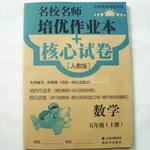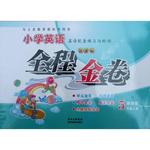题目内容
My sisters and I have dreamt of a home in the city, but when the Alcott family found itself in a small house at the South End without a tree in sight, only a back yard to play in, and no money to buy any of the beautiful things before us, we children all opposed it and longed for the country again.
Anna soon found little pupils, and walked away each morning to her daily task, pausing at the corner to wave her hand to me in answer to my greet with the duster(抹布). My father went to his office downtown, mother to her helping the poor, the little girls to school, and I, Lousia, was left to keep house, feeling like an aged sea-gull as I washed dishes and cooked in the basement kitchen where the only thing I could hope for was someone talking with me.
Good drill, but very hard, and my only comfort was the evening reunion where all met with such various reports of the day’s adventures, we could not fail to find both amusement and instruction.
Father brought interesting and attractive news from the upper world; mother, usually in low spirits because she would give away her clothes with sad tales of suffering from the darker side of life; gentle Anna gave a modest account of her success as a teacher, for even at seventeen her sweet nature won all who knew her, and her patience gained her the support of the most naughty pupil.
My reports were usually a mixture of sadness and happiness, and the children poured their small joys and troubles into the family where comfort and mercy were always to be found
- 1.
We know from this passage that the Alcott family was __________
- A.a happy and united family
- B.an extremely poor family
- C.a family with lots of serious problems
- D.a family that remained in the country
- A.
- 2.
Anna was a successful teacher because_________
- A.she had a strong sense of duty
- B.she was obviously intelligent
- C.she knew her subjects well
- D.she had wonderful character
- A.
- 3.
Lousia’s daily responsibility was_____
- A.to help the poor
- B.to run the house
- C.to go downtown
- D.to feed the seagulls
- A.
- 4.
According to the passage, what Lousia enjoyed most is _________
- A.the evening reunion
- B.moving to the city
- C.joining Anna at her school
- D.telling others her stories
- A.
试题分析:本文叙述了Alcott一家由农村搬到了城里,虽然院子很小,但是一家人过得很是开心,特别让作者感到高兴的是每天全家人回到家后,把各自的心里话说出来大家分享。
1.这是细节理解题。根据这家人过的很快乐,每天都回到家后讲述这一天的事情,道出自己的心声和烦恼,一家人过着幸福的生活,故选A。
2.这是细节理解题。根据gentle Anna gave a modest account of her success as a teacher, for even at seventeen her sweet nature won all who knew her, and her patience gained her the support of the most naughty pupil. Anna的温柔,她的耐心赢得了学生的欢心,故选D。
3.这是细节理解题。根据I, Lousia, was left to keep house Lousia在家做家务,故选B。
4.这是细节理解题。根据my only comfort was the evening reunion ;Lousia做喜欢的是大家都聚在一起说说各自的心里话,故选A。
考点:这是一篇记叙文。
点评:细节题为阅读考题的重头戏,所占比例很高,相对而言较简单,因为这类题虽然要求理解准确,但基本上限于字面意义的理解,范围也限于局部,因此是我们可望得高分的部分。细节题绝大部分体现“中心思想是解”这一原理。本文都是细节理解题,在文中比较容易找到答案。

 名校名师培优作业本加核心试卷系列答案
名校名师培优作业本加核心试卷系列答案 全程金卷系列答案
全程金卷系列答案
When I was thirteen, my family moved from Boston to
The words, so small, didn't seem 40 enough to hold my new life. But the world changed and I awoke on a tram moving across the country. I watched the 41_ change from green trees to flat dusty plains to high mountains as I saw strange new plants that 42 mysteries(奥秘) yet to come. Finally, we arrived and 43 into own new home.
44 my older sisters were sad at the loss of friends, I 45 explored(探索) our
new surroundings.
One afternoon, I was out exploring 46 and saw a new kind of cactus(仙人掌). I crouched (蹲) down for a closer look. "You'd better not 47 that."
I turned around to see an old woman
"Are you new lo this neighborhood?" I explained that I was, 48 , new to the entire state.
"My name is Ina Thorne. Have you got used to life in the 49 ? It must be quite a _50 after living in
How could I explain how I 51 the desert? I couldn't seem to find the right words.
"It's vastness," she offered. “That vastness 52 you stand on the mountains overlooking the desert -- you can 53 how little you are in comparison with the world. _54 , you feel that the possibilities are limitless.”
That was it. That was the feeling I'd bad ever since I'd first seen the mountains of my new home. Again, my 55 would change with just a few simple words.
"Would you like to come to my home tomorrow? Someone should teach you which plant you should and shouldn't touch."
36.A. During | B. Until | C. Upon | D. Before |
37. A. gathered | B. warned | C. organized | D. comforted |
38. A. hoping | B. admitting | C. realizing | D. believing |
39. A. going | B. moving | C. driving | D. flying |
40. A. good | B. simple | C. big | D. proper |
41 A. picture | B. ground | C. sense | D. area |
42. A. suggested | B. solved | C. discovered | D. explained |
43. A. settled | B. walked | C. hurried | D. stepped |
44. A. If | B. After | C. once | D. While |
45. A. bitterly | B. easily | C. proudly | D. eagerly |
46 A as well | B. as usual | C. fight away | D. on time |
47. A. move | B. dig | C. pull | D. touch |
48. A. of course | B. in fact | C. after all | D. at least |
49. A. desert | B. city | C. state | D. country |
50. A. luck | B. doubt | C. shock |
|
51. A. found | B. examined | C. watched | D. reached |
52. A. why | B. when | C. how | D. where |
53. A. prove | B. guess | C. sense | D. expect |
54. A. However | B. Otherwise | C. Therefore | D. Meanwhile |
55. A. idea | B. life | C. home | D. family |